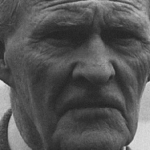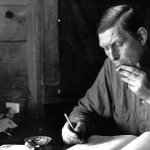Or the true feelings of those slaves who say they
would not be free. The following shows their
feelings when they are free.
Air—“Pop Goes the Weasel”
Old master always said,
Jack will never leave me:
He has a noble head,
He will not deceive me.
I will treat him every day
Kindly and clever,
Then he will not run away—
No, master, never!
One night I heard him say,
He was going to Cleveland,
A thought struck me right away,
That this was a free land.
I thought if I too could go,
The dearest ties I’d sever.
And never would come back no more—
Never! no, never!
The next morn at early dawn,
I heard old master knocking:
He says, “Jack, we must be gone—
Put on your shoes and stockings.”
Quickly I bounded out,
And got my clothes together,
And told my wife I’d not come back
No, Lizzie, never!
Soon we were on the way,
Toward the Forest city;
There to leave my wife a slave,
I thought it was a pity.
I heard mistress slightly say,
We’ll all keep together,
Or Jack will go to Canada,
No, says master, never!
Jack, says he, be wide awake,
And let nobody tease you;
And don’t go too near the lake—
The cold winds will freeze you!
Do you think I would run away,
And leave a man so clever,
And seek a home in Canada?
“No, master, never!”
We stopped at the Weddell house,
The thought then came o’er me,
That now’s the time to go across,
As many have gone before me.
I went down to the steamboat wharf
Got on the Jacob Astor,
And cried aloud as she shoved off,
Farewell, old master.
The next day, in Malden town,
Who should I see but master,
He says, Jack, you must go home,
You’ll starve and freeze to death sir.
Says I, you are a nice old man;
Very kind and clever;
But think I’ll wear my chains again?
“No, master, never!”



















Comment form: